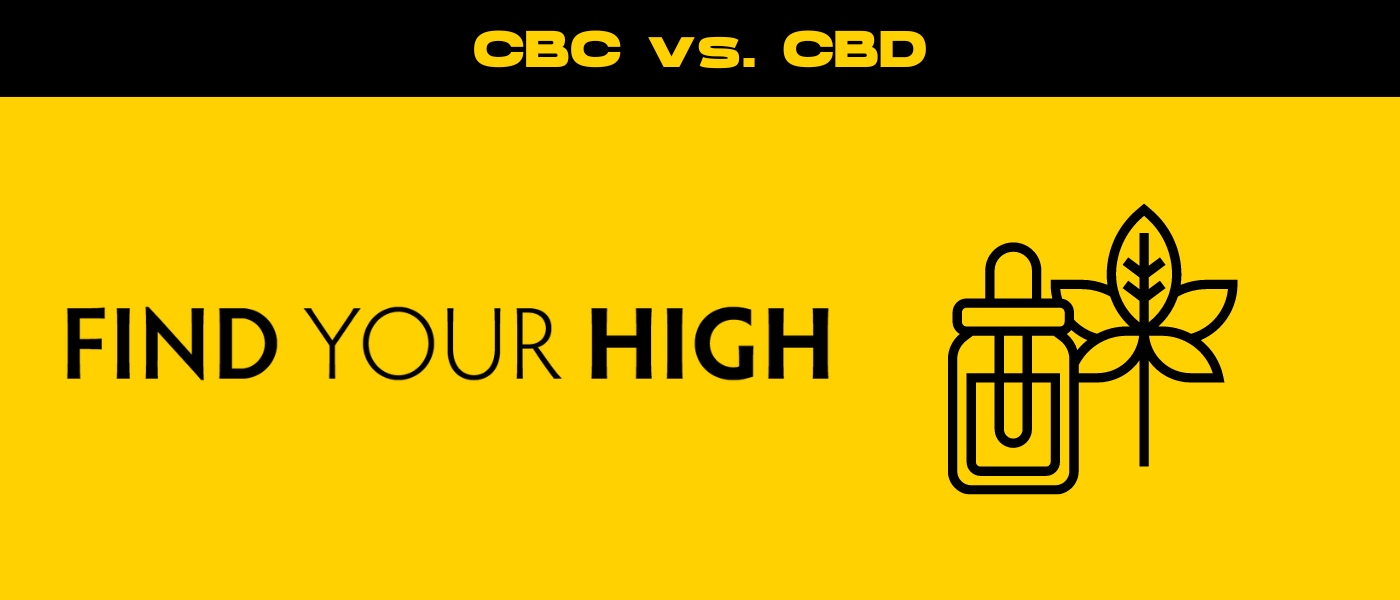Cannabinoid research is making waves, especially with two compounds catching everyone’s attention: CBC vs CBD. These substances are derived from the cannabis plant and work with other compounds, such as terpenes, as well as the body’s endocannabinoid system to benefit the body in several ways.
CBC and CBD are super important in medical research and therapy, with various studies discovering how they can help us. In the past, they’ve been studied for their anti-inflammatory and pain relief qualities, as well as their potential to protect brain health and help with mental health issues.
In this blog, we’ll make CBC and CBD easier to understand, explaining how they’re different, their health and wellness benefits, and what research is saying about these compounds. Let’s dive in!
Understanding Cannabinoids
Cannabinoids are a variety of chemical compounds that interact with receptors in our brain cells to reduce the release of neurotransmitters. Naturally occurring in the cannabis plant, these compounds are responsible for the plant’s various effects on the body.
The most well-known cannabinoids include THC, known for its psychoactive properties, and CBD, celebrated for its therapeutic benefits without the high.
The endocannabinoid system (ECS) plays a crucial role in regulating a wide range of physiological processes, including mood, memory, appetite, pain sensation, and immune system responses. It includes cannabinoid receptors that are scattered all over the body, endocannabinoids (which are molecules your body naturally makes to stimulate these receptors), and enzymes that help break down endocannabinoids.
When cannabinoids like CBD and CBC interact with the ECS, they can help keep the body’s balance, adding to their potential health benefits.
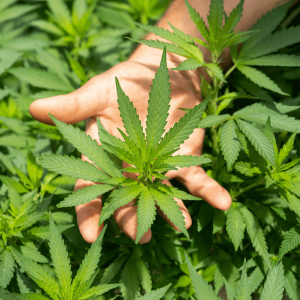
What Is CBC?
Cannabichromene (CBC) is one of the less publicized cannabinoids found in the cannabis plant but is gaining recognition for its potential health benefits.
Unlike THC, CBC is non-psychoactive and does not contribute to the “high” associated with cannabis use. Its chemical structure closely resembles other cannabinoids, but it has unique properties and effects on the human body.
CBC is derived from the cannabis plant through the decarboxylation of cannabichromenic acid (CBCA). During the plant’s growth, CBCA is synthesized from CBGA (cannabigerolic acid), which is a common precursor to several cannabinoids. When cannabis is heated, through smoking, cooking, or vaporization, CBCA is converted into CBC.
Benefits of CBC
Anti-inflammatory Properties
One cool thing about CBC is its ability to calm inflammation. Research highlights how CBC can dial down swelling and inflammation, which could be a game-changer for those dealing with conditions like arthritis, where inflammation is a major culprit.
Potential in Cancer Treatment
Emerging research is showing some exciting possibilities that CBC might help in battling cancer. It seems to work by interacting with the endocannabinoid system, showing promise in stopping the growth of cancer cells across different types of cancer. Of course, we need more research for a full understanding, but it’s definitely something to be hopeful about!
Effects on Pain Relief
CBC has been researched for its potential to relieve pain. It is believed to block pain signals by interacting with receptors in the body’s endocannabinoid system. This could make CBC a valuable component in creating more effective pain management options, especially for those who suffer from chronic pain.
Impact on Brain Cells and Neurogenesis
Interestingly, CBC may also have a positive effect on the brain. Studies suggest that CBC can promote neurogenesis, the growth of new brain cells, particularly in the hippocampus. This is an exciting area of research, especially regarding mental health treatments, as it shows potential for rehabilitation and recovery in neurological diseases and injuries.
What Is CBD?
Cannabidiol, or CBD, is another significant cannabinoid found in the cannabis plant, widely recognized for its promising therapeutic benefits but without the psychoactive effects associated with THC.
Its chemical structure enables it to interact with the body’s endocannabinoid system (ECS) in ways that can support health and wellness, but it’s the unique way CBD acts on these receptors that distinguishes it from other cannabinoids like CBC.
Unlike THC, CBD takes a different approach. It doesn’t directly latch onto the main cannabinoid receptors (CB1 and CB2). Rather, it works its magic on several non-cannabinoid receptors and ion channels, plus it stops anandamide, a natural pain-regulating cannabinoid molecule, from being taken up too quickly, boosting its pain-relieving effects. Thanks to this roundabout way of working, CBD offers all sorts of health benefits without the high.
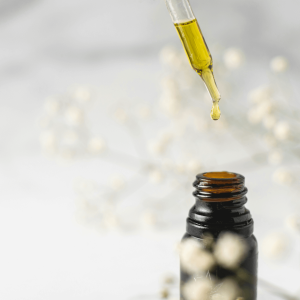
Difference in the Extraction Process of CBD from Cannabis and Hemp
CBD can be extracted from both marijuana (cannabis) and hemp plants, but the methods and purposes often vary.
Hemp-derived CBD, which is now widely legal, tends to have high CBD content and low THC levels. The extraction from hemp involves using carbon dioxide (CO2) or ethanol to strip the compound from hemp plant fibers, creating a product that’s safe for consumption and has insignificant psychoactive effects.
Cannabis-derived CBD is usually extracted from strains specifically bred to have high CBD content. The same extraction methods—CO2 and ethanol—are used, but the resulting product may contain higher THC levels, depending on the source plant. This makes the legality of cannabis-derived CBD more complicated, varying by jurisdiction.
Benefits of CBD
Analgesic Effects and Pain Management
CBD products are highly regarded for their pain-relieving effects, acting on the endocannabinoid system to decrease the perception of pain and inflammation. CBD products offer a natural alternative for individuals seeking pain relief without the side effects associated with some pharmaceutical pain relievers.
Anxiety and Stress Relief
Another well-documented benefit of CBD is its potential to reduce anxiety and stress. By interacting with the ECS and serotonin receptors in the brain, CBD can modulate mood and anxiety levels, providing a calming effect that has been supported by numerous studies.
Epilepsy and Seizure Treatments
One of the most significant medical breakthroughs regarding CBD is its effectiveness in treating certain forms of epilepsy, such as Dravet syndrome and Lennox-Gastaut syndrome.
The FDA-approved drug Epidiolex, which contains CBD, has shown remarkable results in reducing the frequency of seizures in affected patients.
Potential Benefits in Treating Skin Conditions
CBD’s anti-inflammatory properties extend to skincare, where it’s been shown to help reduce inflammation and sebum production. For conditions like acne, eczema, and psoriasis, CBD-infused topicals can offer relief by targeting inflammation and reducing the appearance of irritation.
CBC vs CBD: Chemical Differences
When comparing CBC (Cannabichromene) with CBD (Cannabidiol), it’s crucial to understand that they have distinct chemical structures and are produced differently in the cannabis plant. However, despite these differences, both contribute to the plant’s medicinal properties.
Comparison of the Molecular Structure
CBC and CBD both come from the same starting point, which is CBGA (cannabigerolic acid), a key molecule that leads to the creation of many cannabinoids. As they develop, their structures change.
CBC forms when an enzyme changes CBGA into CBCA (cannabichromenic acid), and then it turns into CBC when heated. CBD is made in a similar way, starting with CBGA turning into CBDA (cannabidiolic acid), and then becoming CBD when it goes through a process called decarboxylation.
These differences in structure are important because they affect how each cannabinoid works with the body’s endocannabinoid system and nervous system, which in turn influences their potential health benefits.
Differences in the Synthesis Process within the Cannabis Plant
The way CBC and CBD are made in the cannabis plant involves different enzymes that turn CBGA into their specific acidic forms before decarboxylation.
For CBC, a specific enzyme works on CBGA to make CBCA, which then becomes CBC when heated. On the other hand, creating CBD uses a different enzyme to change CBGA into CBDA, and then heating produces CBD.
These unique enzyme processes are crucial because they determine the amounts and ratios of CBC and CBD in the cannabis plant, affecting its overall cannabinoid profile and how it may be used therapeutically.
Therapeutic Use in Medicine
The use of CBC and CBD in medical settings marks a move towards more holistic health patient care, especially for conditions not easily treated with conventional methods.
Studies and real-world examples show how these cannabinoids could help manage or even treat various conditions. For example, CBD has been effective in reducing seizures in epilepsy, leading to the approval of CBD-based drugs by the FDA.
Early research also hints that CBC might help fight cancer, but more studies are needed to be sure.
Both cannabinoids are being studied for their pain-relieving and anti-inflammatory properties, which could provide an alternative to traditional painkillers like opioids.
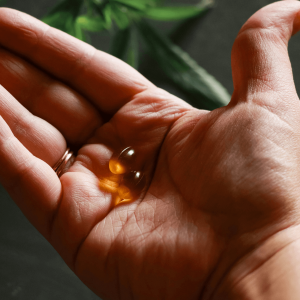
Side Effects and Safety
The potential health benefits of CBC and CBD are interesting, but it’s crucial to be aware of their side effects and safety.
People using CBD might experience tiredness, appetite changes, and stomach issues, but usually, it’s well-tolerated. There’s less information on CBC’s side effects because not as many studies have been done, and it’s important to note that everyone’s experience with these treatments can differ.
The FDA is careful about CBD use and keeps an eye on its safety and how well it works. They’ve approved a CBD drug for epilepsy but stress that more research is needed to understand all the side effects and how CBC interacts with other drugs. It’s wise to be cautious with CBD and CBC products and to talk to a doctor before using them for health reasons.
How to Use CBC and CBD
When using CBC and CBD, it’s important to understand the recommended dosages and administration methods.
Dosage may vary widely based on factors such as the individual’s weight, the condition being treated, and the concentration of the product.
Recommended Dosages and Administration Methods
Because everyone reacts differently and there are no set rules on how much to take, it’s best to start with the smallest dose and slowly increase it. For CBD, a good starting dose could be 20 to 40 milligrams a day.
If you don’t see the results you want after a week, you can try increasing it by 5 mg. CBC dosing is not as clear since its research is still early, but the same idea of starting low and increasing slowly applies.
Tips for first-time users
- Start with a Low Dose: Begin your regimen with a small amount and monitor how your body reacts.
- Be Patient: It may take some time to observe significant effects as cannabinoids build up in the system.
- Choose High-Quality Products: Opt for products tested by third-party laboratories to ensure purity and potency.
- Consult Healthcare Providers: It’s beneficial to speak with a medical professional, especially if you’re taking other medications.
Consumer Products: CBC vs CBD
Numerous consumer products feature CBC and CBD, catering to a variety of needs and preferences.
- CBD oil, CBC oil, and Tinctures: Ideal for controlled dosing, oils and tinctures are applied under the tongue for fast absorption.
- Capsules and Pills: Suitable for those who prefer precise dosages and a tasteless option.
- Topicals: Creams, balms, and lotions infused with CBC or CBD, applied directly to the skin for localized relief.
- Edibles: Infused edibles, such as gummies and chocolates, offer a discreet and convenient way to consume cannabinoids.
- Vape Products: Provide immediate effects but come with increased scrutiny regarding their safety.
Tips for Choosing the Right Product for Specific Needs
- Identify Your Needs: Decide if you’re seeking relief from pain, anxiety, inflammation, or another condition.
- Research the Potency: Choose a product with a concentration that aligns with your dosage requirements.
- Consider the Form: Think about which type of product will best fit your lifestyle and comfort.
- Look for Lab Tests: Only buy from brands that offer transparent third-party lab results for their products.
- Legal Considerations: Ensure that the product is legal in your jurisdiction, especially if it contains higher levels of THC.
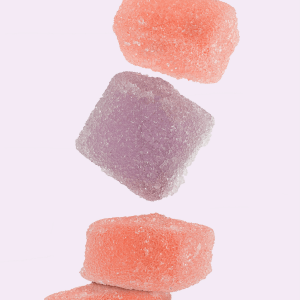
Conclusion
In conclusion, exploring CBC and CBD in the cannabis plant shows they have different ways of being made, unique health benefits, and are slowly being used more in medicine. The way these compounds are created in the plant affects how well they work, highlighting the need for more research and careful regulation.
While there’s a lot of interest in their medical uses, CBD has already seen success with FDA approval, and CBC is showing potential, especially in cancer research, but more evidence is needed.
The future of CBC and CBD in health looks bright, thanks to growing research and a better understanding of their effects and safety. They offer new options for pain relief and could help treat conditions like epilepsy and maybe even cancer, making them key in moving towards more holistic and personalized medical treatments.
Frequently Asked Questions
1. Which is better, CBC or CBD?
Deciding whether CBC or CBD is “better” depends on the specific health goals or symptoms a person is trying to address. CBD is more widely studied and has been shown to help with a wider range of issues, including seizures, anxiety, and pain management.
CBC, on the other hand, has shown potential in early studies for cancer and inflammation but lacks the extensive research that CBD has.
The choice between CBC and CBD should be based on individual needs and, ideally, in consultation with a healthcare provider.
2. What is CBC with CBD?
CBC with CBD refers to products or formulations that contain both cannabichromene (CBC) and cannabidiol (CBD). These products aim to leverage the potential benefits of both cannabinoids, possibly enhancing their effects through the entourage effect. This theory suggests that cannabinoids may work better together than in isolation, offering a synergistic impact that could improve overall effectiveness in treating specific conditions or symptoms.
3. Is CBD or CBC better for sleep?
CBD is generally considered to be better for sleep issues due to its more substantial body of research supporting its use in reducing anxiety and improving sleep patterns.
While CBC also shows promise for its anti-anxiety and potential sedative effects, the evidence is less conclusive than CBD.
Users looking for sleep support may benefit from products containing a combination of CBD and CBC to maximize potential benefits.
4. Does CBC help anxiety?
Preliminary research and anecdotal evidence suggest that CBC may help with anxiety, much like CBD. However, the research on CBC’s effects on anxiety is not as robust as it is for CBD.
CBC is thought to contribute to the overall mood-elevating properties of cannabis through its interaction with other cannabinoids, possibly enhancing the anti-anxiety effects of CBD when used together. More research is needed to fully understand CBC’s role in anxiety management.

 Rewards
Rewards




